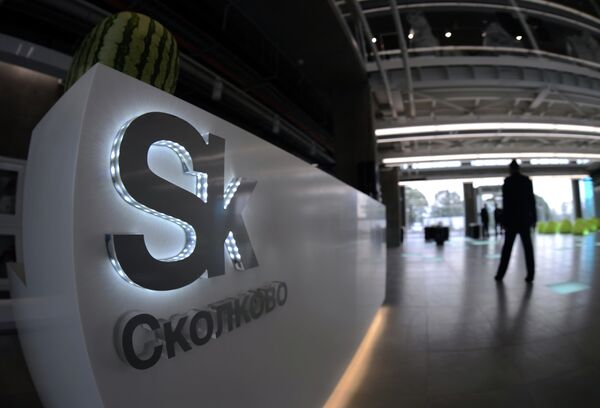MOSCOW, February 12 (RIA Novosti) – Russian investigators on Tuesday poured cold water on claims by the Skolkovo hi-tech hub that it had volunteered information about embezzlement of 24 million rubles (about $800,000) by some of its own staff, prompting a criminal investigation.
Investigative Committee spokesman Vladimir Markin said earlier on Tuesday that a criminal investigation had been launched against two high-ranking Skolkovo officials suspected of embezzling 24 million rubles.
“A criminal case was launched against the head of the financial department of the Foundation for the Development of the Center of Development and Commercialization of High Technologies [the Skolkovo Foundation], Kirill Lugovtsev, the head of the Skolkovo Innovation Centre Customs Finance Company [TFK Skolkovo, a subsidiary of the Skolkovo Foundation], Vladimir Khokhlov, and other individuals,” Markin said.
Lugovtsev is suspected of renting a building to house the TFK Skolkovo headquarters from a company owned by his parents.
“The rental contract envisaged a three-year non-refundable advance payment. Khokhlov and Lugovtsev have also agreed to pay for the building’s extensive renovation,” Markin said.
Skolkovo quickly responded by claiming that it had instigated disclosure of the financial malpractise following the results of an internal audit, and called in the authorities to investigate.
“In the wake of information appearing about investigative measures being taken against a former fund employee, we must note that the information about possible breaches at one of its subsidiaries was sent by Skolkovo’s representatives to the competent agencies following the fund’s internal audit,” Skolkovo said.
It also claimed the fund’s “timely reaction to the situation helped minimize negative consequences, return advance payments to the budget and reimburse other losses incurred, while the employee who had made breaches then had to leave the fund.”
Skolkovo's President, billionaire Viktor Vekselberg, also issued a statement saying the fund had promptly exposed the embezzlement and the money had been returned to the fund.
“Back last year… in February the fund exposed violations related to an interested party transaction during an internal audit. The necessary measures were taken following the audit, and in June last year the contract with that specific organization was cancelled and the manager involved in the transaction was dismissed. All the materials on this case were transferred to the controlling bodies in October … and the money was returned to the fund,” Vekselberg said.
The Investigative Committee, however, later rejected claims that Skolkovo was responsible for uncovering the fraudulent scheme.
“In reality, the fund’s representatives strongly exaggerated their statement saying they themselves transferred the materials to the competent bodies on violations exposed during an internal audit at one of the fund’s subsidiaries. On the contrary, the fund concealed this information but was forced to make it public after the Audit Chamber started a check,” Markin said.
Skolkovo is the centerpiece of the Russian government's drive to foster development of high-tech industry and diversify the economy away from reliance on raw materials production.

